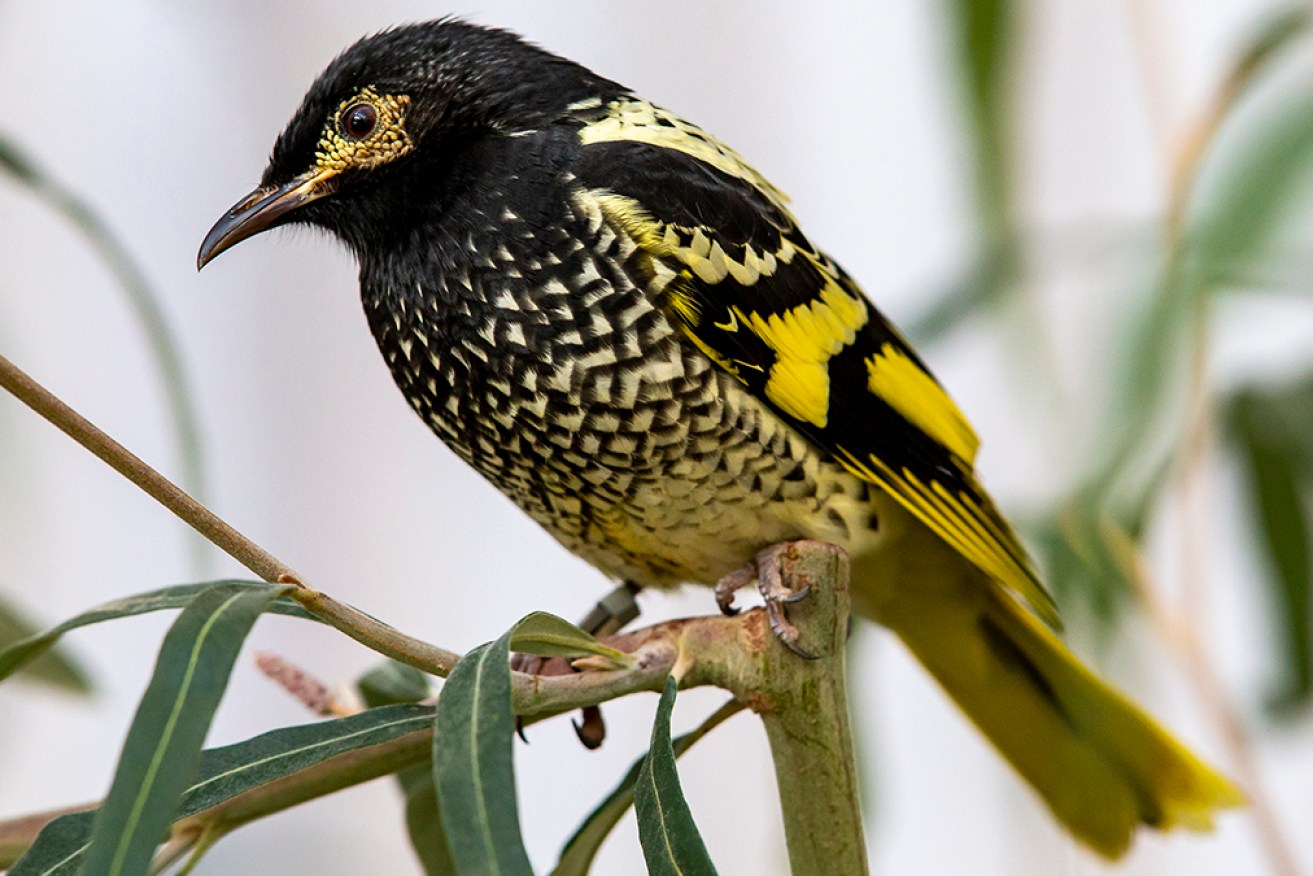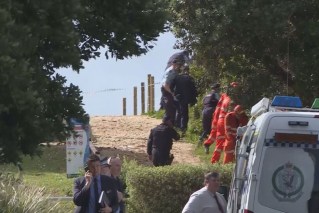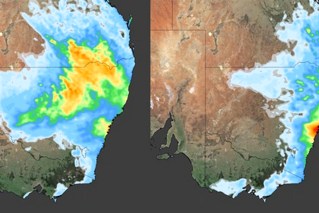Clearing halted amid fears for endangered regent honeyeater

Australia's population of critically endangered regent honeyeaters is estimated at 250 to 350 birds. Photo: AAP/Taronga Conservation Society
Land clearing has been halted on a New South Wales property amid concerns it may have harmed an important breeding area for one of Australia’s rarest birds.
The regent honeyeater is critically endangered, with so few left that 50 zoo-bred birds were released in the Hunter Valley last year in a bid to give the species a leg up.
It’s estimated the wild population sits between 250 and 350, with the striking black and yellow bird among the priority species earmarked for special attention under a national plan to ward off new extinctions.
But the Australian Conservation Foundation has released satellite imagery and aerial footage of a naked expanse on a property about 40 kilometres west of Armidale.
It’s raised concerns about potentially unlawful bulldozing with federal authorities and land owner Campbell Tonkin, claiming 250 hectares of threatened species habitat has already been lost with another 30 prepared for clearing.
ACF nature campaigner Nathaniel Pelle said the Atlas of Living Australia records 26 sightings of the bird within a 10-kilometre radius of the property.
And he says it’s in the heart of one of four key breeding areas.
“It’s shocking to see this woodland, which is critical to the survival of the regent honeyeater, being bulldozed for beef production.
“Australia is one of the worst-developed nations for deforestation with around 50 per cent of this continent’s woodland and forest cover estimated to have been cleared since colonisation.”
The federal environment department said it was looking into the allegations.
The clearing of native vegetation in NSW is the primary responsibility of the state government.
But federal approval is required if an action will or is likely to significantly affect a matter of national environmental significance, such as an endangered species.
Mr Tonkin said he was aware of the conservation group’s concerns but it had not provided specific evidence to support claims any honeyeater habitat had been “actively destroyed by us”.
“In any event, since the matter was first raised by the Australian Conservation Foundation, we have ceased any further works on our property until their claims have been properly investigated,” he said in a statement.
“Any clearing of land has been done in consultation with NSW Local Land Services. We reject any allegation of improper conduct or illegal land clearing.”
-AAP








